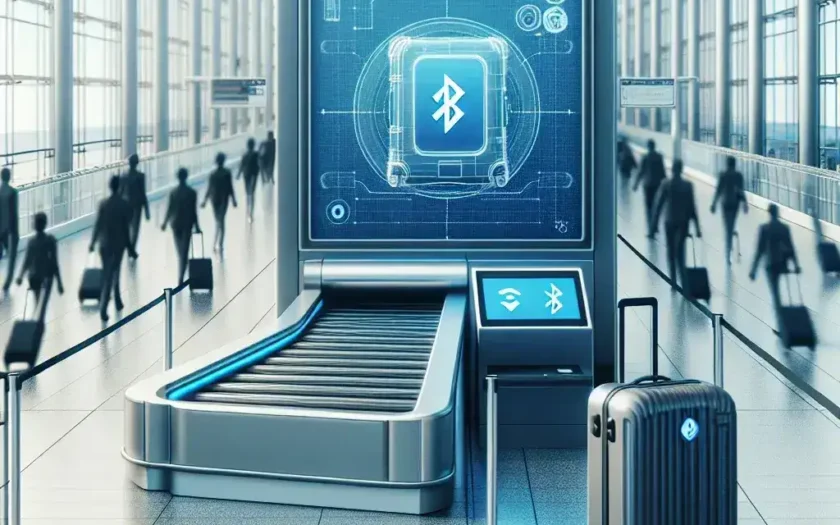Introduction
The travel industry has always been on the cutting edge of technology, and as we enter a new era of air travel, U.S. airlines are innovating to enhance customer experience. One of the most exciting advancements is the trial of Bluetooth tracker bag self-check systems at airport kiosks. This article explores how this technology is set to revolutionize the luggage drop-off process, making it faster and more efficient for travelers.
Understanding the Technology Behind Bluetooth Trackers
Bluetooth trackers are small devices that use Bluetooth technology to transmit data over short distances. They can be attached to bags, allowing travelers and airlines to monitor the location of luggage in real-time. With the ability to communicate with kiosks, these trackers enable self-service check-in, reducing the need for manual intervention.
How Bluetooth Trackers Work
- Bluetooth Connectivity: They connect to passengers’ smartphones or kiosks, providing updates on bag status.
- Real-Time Monitoring: Passengers can track their luggage’s location, ensuring peace of mind.
- Self-Check-In: At kiosks, passengers can check in their bags without waiting in line.
The Benefits of Bluetooth Tracker Bag Self-Check
The potential advantages of implementing Bluetooth tracker self-check systems at kiosks are numerous. Below are some pros that highlight why this technology could be a game changer for airlines and travelers alike:
1. Speed and Efficiency
One of the primary benefits of using Bluetooth tracker systems is the speed it offers. By allowing passengers to self-check their bags, the process becomes significantly quicker. Travelers can bypass long lines and drop their bags off without delay, expediting the overall boarding process.
2. Enhanced Customer Experience
In an age where customer satisfaction is paramount, airlines are always seeking ways to improve the passenger experience. By implementing Bluetooth tracking, airlines can provide real-time information about luggage status, which can help ease anxiety regarding lost bags.
3. Reduced Staffing Needs
Self-service kiosks equipped with Bluetooth technology can help airlines reduce the number of staff required for baggage check-in. This can lead to significant cost savings, allowing airlines to allocate resources more efficiently.
4. Increased Luggage Security
With the ability to track luggage in real time, the risk of lost or mishandled bags decreases. Passengers can monitor their bags’ movements, enhancing personal security and instilling confidence in the airline’s ability to manage luggage effectively.
Challenges and Considerations
While the benefits are noteworthy, there are challenges that airlines must consider before fully implementing this technology:
1. Technology Adoption
Not all passengers are tech-savvy, and some may struggle with using Bluetooth trackers or kiosks. Airlines will need to provide adequate support and instructions to ensure that all travelers can benefit from the new system.
2. Initial Costs
Investing in Bluetooth tracker technology and the associated infrastructure may require substantial initial capital. Airlines will need to weigh the long-term benefits against upfront costs.
3. Data Privacy Concerns
As with any technology that collects and shares data, privacy is a significant concern. Airlines must ensure that passenger information is secured and that any data collected is used responsibly and ethically.
The Future of Air Travel with Bluetooth Technology
As airlines continue to test and refine Bluetooth tracker bag self-check systems, the future of air travel looks promising. With a growing emphasis on personalization and digital solutions, the integration of smart technologies in the travel industry is set to expand.
Potential Developments
- Wider Adoption: If successful, we can expect more airlines to adopt this technology across their fleets.
- Integration with Other Services: Bluetooth tracking could be integrated with airport services, such as shuttle buses and boarding gates, to provide seamless travel experiences.
- Enhanced Features: Future iterations may include additional features, such as automatic bag weighing and immediate notifications for any abnormalities.
Conclusion
The testing of Bluetooth tracker bag self-check at kiosks represents a significant leap forward in the air travel experience. By streamlining the luggage drop-off process, airlines aim to enhance efficiency, improve customer satisfaction, and reduce operational costs. As the trials progress, it will be fascinating to watch how this technology reshapes the landscape of air travel and the potential it holds for the future.
In conclusion, the integration of Bluetooth technology into the luggage handling process is an exciting development for both airlines and passengers. As the industry embraces innovation, the prospect of a more efficient, secure, and pleasant travel experience becomes a reality.

